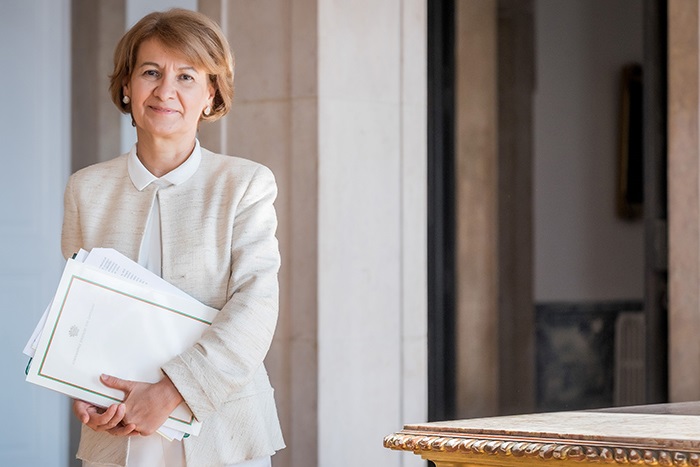Sponsored Content
Challenges to Media Freedom in OSCE Region Linked to Larger Political and Social Contexts
According to Representative on Freedom of the Media Teresa Ribeiro, current setbacks in media freedom are not isolated incidents but rather closely linked to the larger political and social contexts in which they occur. Read on to learn more about Ribeiro's report and her call to protect and enhance media freedom in the OSCE region.
 OSCE Representative on Freedom of the Media Teresa Ribeiro recently presented her bi-annual report to the Permanent Council. / Picture: © Portuguese Republic Government
OSCE Representative on Freedom of the Media Teresa Ribeiro recently presented her bi-annual report to the Permanent Council. / Picture: © Portuguese Republic Government
During the presentation of her bi-annual report to the OSCE Permanent Council, Representative on Freedom of the Media (RFoM) Teresa Ribeiro stated that the current setbacks in media freedom in the OSCE region are not isolated incidents but are closely linked to the larger political and social contexts in which they occur.
The report states that recent declines in democracy have…
or Log In
Fast News Search





